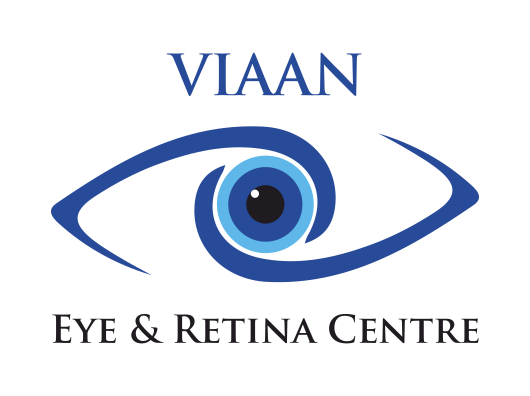As our lives become increasingly intertwined with digital devices, from smartphones and tablets to computers and e-readers, the prevalence of digital eye strain has surged. This modern-day dilemma affects millions globally, emphasising the need for proactive measures to safeguard our vision. Consulting an eye specialist doctor is a pivotal starting point in understanding and addressing the nuances of digital eye strain. In this comprehensive guide, we will explore the causes, symptoms, and actionable strategies to protect your eyes in the ever-evolving landscape of the digital age.
Experts Eye Specialist Doctor Insight to Protect Your Eyes Understanding Digital Eye Strain
Digital eye strain, also known as computer vision syndrome, refers to a group of eye and vision-related problems resulting from prolonged use of computers, tablets, smartphones, and e-readers. The primary culprits include according to eye specialist doctor:
- Blue Light Exposure: Digital screens emit high-energy visible (HEV) blue light, which can penetrate deep into the eyes, potentially causing retinal damage and disrupting sleep patterns.
- Poor Ergonomics: Incorrect posture and viewing distances can strain the eyes, leading to discomfort and fatigue.
- Reduced Blink Rate: When focusing on screens, people tend to blink less frequently, resulting in dry, irritated eyes.
Symptoms of Digital Eye Strain
Recognizing the signs of digital eye strain is crucial for timely intervention. Common symptoms include as per eye specialist doctor:
- Eye Discomfort: Dryness, burning sensation, or a feeling of grittiness in the eyes.
- Blurred Vision: Difficulty focusing on the screen or experiencing temporary blurred vision after prolonged use.
- Headaches: Persistent headaches, especially around the temples and forehead.
- Neck and Shoulder Pain: Straining to view screens can lead to muscle tension and discomfort in the neck and shoulders.
Consult an Eye Specialist Doctor
If you experience persistent symptoms of digital eye strain, it’s imperative to consult an eye specialist doctor. A comprehensive eye examination can help identify underlying issues such as refractive errors, dry eye syndrome, or computer vision problems. Based on the evaluation, the doctor can recommend personalised strategies to alleviate your symptoms and improve visual comfort.
Tips to Protect Your Eyes
- Follow the 20-20-20 Rule: Every 20 minutes, take a 20-second break to look at something 20 feet away. This simple technique can reduce eye fatigue and strain.
- Adjust Screen Settings: Optimise your device settings to reduce blue light emission. Consider using blue light filters or specialised glasses that block HEV light.
- Maintain Proper Posture: Ensure your workstation is ergonomically designed. Position your screen at eye level, maintain a comfortable viewing distance (about arm’s length), and use a supportive chair to reduce neck and shoulder strain.
- Blink Regularly: Make a conscious effort to blink frequently while using digital devices. Use artificial tears or lubricating eye drops to alleviate dryness and discomfort.
- Limit Screen Time: Take regular breaks from screens and engage in activities that promote eye relaxation, such as walking outdoors, practising eye exercises, or reading a printed book.
- Stay Hydrated: Drink plenty of water throughout the day to maintain adequate tear production and prevent eye dryness.
- Use Proper Lighting: Ensure your workspace is well-lit with indirect lighting to reduce glare and reflections on the screen. Avoid placing screens against bright windows or under harsh overhead lighting.
The Role of Technology in Eye Care
Advancements in technology offer innovative solutions to combat digital eye strain. Consider incorporating the following tools and techniques as per eye specialist doctor:
- Blue Light Blocking Glasses: Specialised eyewear designed to filter out harmful blue light, reducing eye strain and improving sleep quality.
- Anti-glare Screens: Attach anti-glare filters to your devices to minimise reflections and enhance screen clarity.
- Computer Glasses: Prescription glasses tailored for computer use, providing optimal vision and reducing eye fatigue during prolonged screen time.
Adopt a Holistic Approach to Eye Health
While implementing the aforementioned strategies can significantly alleviate digital eye strain, adopting a holistic approach to eye health is essential for long-term well-being suggested by eye specialist doctor. Here are additional steps you can take to care for your eyes in the digital age:
- Nutrition Matters: A balanced diet rich in antioxidants, vitamins, and essential fatty acids can promote eye health and reduce the risk of age-related vision problems. Incorporate foods like leafy greens, fish, nuts, and colourful fruits and vegetables into your diet to nourish your eyes from within.
- Regular Eye Examinations: Schedule routine eye examinations with an eye specialist doctor to monitor your eye health and detect any potential issues early on. Comprehensive eye exams can identify refractive errors, monitor changes in vision, and assess the overall health of your eyes.
- Physical Activity: Engage in regular physical activity to improve blood circulation and oxygen supply to your eyes. Simple exercises such as eye rolls, focusing on near and distant objects, and palming (covering your eyes with your palms) can help relax your eye muscles and alleviate strain.
- Quality Sleep: Prioritise quality sleep to allow your eyes to rest and rejuvenate. Establish a regular sleep schedule, create a conducive sleep environment (dark room, comfortable mattress), and limit screen time before bedtime to promote healthy sleep patterns.
- Mindfulness and Relaxation Techniques: Incorporate mindfulness meditation, deep breathing exercises, and relaxation techniques into your daily routine to reduce stress levels and alleviate eye strain. Practising mindfulness can help you become more aware of your screen habits, posture, and overall well-being.
Educating the Next Generation by Eye Specialist Doctor
As digital devices become increasingly integrated into educational settings, it’s crucial to educate children and adolescents about the importance of eye health and responsible screen use. Encourage them to:
- Take frequent breaks during online learning sessions.
- Maintain proper posture and viewing distances while using devices.
- Engage in outdoor activities and limit recreational screen time.
- Use technology responsibly and prioritise physical activities, reading, and social interactions.
After instilling healthy screen habits from a young age, we can empower the next generation to prioritise their eye health and navigate the digital world safely.
Conclusion
prioritising eye health is crucial, and expert care makes all the difference. Viaan Eye and Retina Centre in Gurgaon stands as a beacon of excellence in eye specialist doctor, offering specialised treatments such as vitreoretinal therapy and cataract surgery. Their commitment to cutting-edge technology, personalised care, and patient-centric approach ensures optimal outcomes for various eye conditions, including digital eye strain.
With Viaan Eye and Retina Specialist, individuals receive top-tier, tailored care, addressing unique needs and enhancing overall well-being. Trusting your vision to Viaan signifies prioritising quality, innovation, and expertise in eye care. Embrace the future with confidence, knowing that your eye health is in the best hands
Frequently Asked Questions
1. What services does the eye specialist offer?
The eye specialist doctor provides a range of services, including vitreoretinal therapy, cataract surgery, and comprehensive eye examinations to address various eye conditions and vision-related issues.
2. How can I alleviate digital eye strain?
To reduce digital eye strain, consider implementing strategies such as following the 20-20-20 rule, adjusting screen settings to minimise blue light exposure, and maintaining proper posture while using digital devices.
3. What are the signs of eye strain?
Common signs of eye strain include dryness, burning sensation, blurred vision, headaches, and discomfort in the eyes, neck, or shoulders after prolonged screen time or reading.
4. How often should I have an eye examination?
It is recommended to have a comprehensive eye examination at least once a year or as advised by the eye specialist doctor to monitor your eye health, detect potential issues, and ensure optimal vision.
5. Are there specialised treatments for specific eye conditions?
Yes, specialised treatments such as vitreoretinal therapy, cataract surgery, and laser procedures are available to address specific eye conditions, including retinal disorders, cataracts, and refractive errors.
6. How can I protect my eyes from environmental factors?
To protect your eyes from environmental factors, wear sunglasses with UV protection, maintain adequate hydration, and follow recommended safety guidelines when engaging in activities that pose a risk to eye health.
7. What role does nutrition play in eye health?
Nutrition plays a crucial role in eye health. Consuming a balanced diet rich in antioxidants, vitamins, and essential fatty acids can support eye health, reduce the risk of age-related vision problems, and promote overall well-being.
8. How can I ensure proper postoperative care following eye surgery?
Following eye surgery, it is essential to follow the postoperative care instructions provided by the eye specialist doctor, including using prescribed medications, attending follow-up appointments, avoiding strenuous activities, and protecting your eyes from injury or infection.
9. Can children and adolescents benefit from specialised eye care?
Yes, children and adolescents can benefit from specialised eye care, including comprehensive eye examinations, vision screenings, and treatments tailored to their unique needs to promote healthy vision development and address any potential issues early on.
10. How can I schedule an appointment with the eye specialist?
To schedule an appointment with the eye specialist doctor, contact the clinic directly, inquire about availability, and provide relevant information regarding your eye health concerns or specific services you may require.



